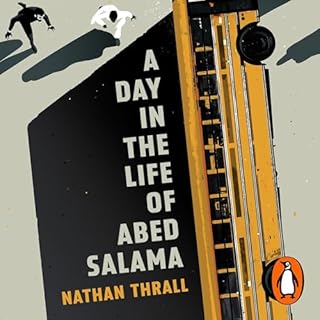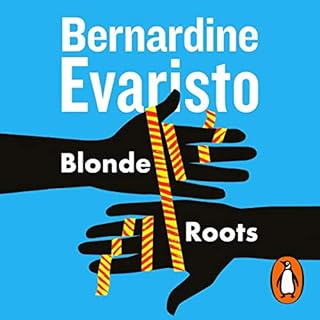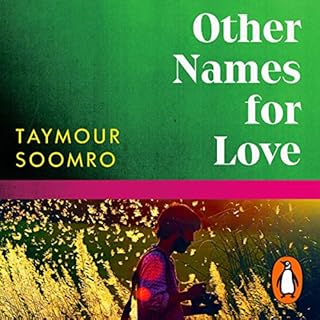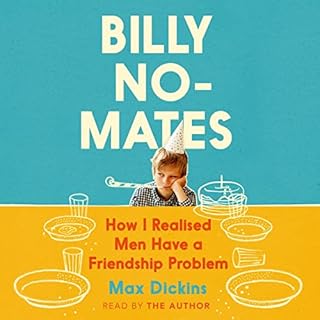Hugh M. Clarke
- 74
- reviews
- 144
- helpful votes
- 238
- ratings
-
The Absolutist
- By: John Boyne
- Narrated by: Michael Maloney
- Length: 8 hrs and 36 mins
- Unabridged
-
Overall4.5 out of 5 stars 551
-
Performance4.5 out of 5 stars 494
-
Story4.5 out of 5 stars 492
September 1919: 21-year-old Tristan Sadler takes a train from London to Norwich to deliver some letters to Marian Bancroft. Tristan fought alongside Marian’s brother Will during the Great War, but in 1917 Will laid down his guns on the battlefield, declared himself a conscientious objector and was shot as a traitor, an act which has brought shame and dishonour on the Bancroft family. But the letters are not the real reason for Tristan’s visit. He holds a secret deep in his soul. One that he is desperate to unburden himself of to Marian, if he can only find the courage.
-
5 out of 5 stars
-
Brilliant and deeply touching
- By Edward Phillips on 13-01-15
- The Absolutist
- By: John Boyne
- Narrated by: Michael Maloney
Engaging and Thought Provoking
Reviewed: 31-12-24
This book is well performed by Michael Maloney. I enjoyed the pace and the deep, calm tone of his reading. The characters stood out clearly and had distinctive voices. The book itself is a combination of war-time novel, romance and moral exploration, subjects well handled by the writer.
Something went wrong. Please try again in a few minutes.
You voted on this review!
You reported this review!
-
Native Son
- By: Richard Wright
- Narrated by: Peter Francis James
- Length: 17 hrs and 41 mins
- Unabridged
-
Overall4.5 out of 5 stars 52
-
Performance5 out of 5 stars 47
-
Story4.5 out of 5 stars 47
Reckless, angry and adrift, Bigger Thomas has grown up trapped in a life of poverty in the slums of Chicago. But a job with the affluent Dalton family provides the setting for a catastrophic collision between his world and theirs. Hunted by citizen and police alike, and baited by prejudiced officials, Bigger finds himself the cause célèbre in an ever-narrowing endgame.
-
5 out of 5 stars
-
One of ths best books I have ever read.
- By brookwood1971 on 23-02-22
- Native Son
- By: Richard Wright
- Narrated by: Peter Francis James
Bigotry and Alienation
Reviewed: 07-09-24
This is a thought provoking story, and one that highlights the prejudice and racism that exists to this day, in the US, the UK and elsewhere. It was written in 1940 and through its examination of a double killing and the workings of the justice system, the book explores the alienation and disconnection experienced by a young black man, Bigger Thomas. In the early stages of the novel, Bigger is essentially ‘dead’, empty and drifting. He speaks few words and believes in nothing and no one. Killing therefore comes easy to him. The first killing is that of a young white woman, the daughter of Bigger’s rich and benign employer. The second is of a young black woman, Bessie, Bigger’s girlfriend, whom he does not love, because Bigger can love no one, not even himself.
The novel resembles that of Albert Camus’ “The Stranger”, though Camus’ novel was written two years later. Both explore the existential themes of freedom, responsibility and isolation. Through the trial of Bigger Thomas, “Native Son” sets out to demonstrate that, while Bigger may have committed the crimes he is accused of, it is the racist society within which he lives, that created the killer in him; the racist society that found him guilty (of murder and rape) even before he committed the crimes. His only advocates are to be found among members of the local Communist Party - Jan, a man of principle, on whom Bigger initially tries to pin the crime, and Mr. Max, an elderly, white Jewish lawyer. It is the latter who defends Bigger in court and by the end of the novel, Bigger has not only confessed his crimes, but has also come to life, confessing his soul and forming a bond of trust and connection with Mr. Max, giving Bigger the one and only meaningful relationship he has ever had.
Something went wrong. Please try again in a few minutes.
You voted on this review!
You reported this review!
1 person found this helpful
-
Small Worlds
- By: Caleb Azumah Nelson
- Narrated by: Caleb Azumah Nelson
- Length: 7 hrs and 23 mins
- Unabridged
-
Overall4.5 out of 5 stars 43
-
Performance4.5 out of 5 stars 42
-
Story4.5 out of 5 stars 42
The one thing that can solve Stephen's problems is dancing. Dancing at Church, the shimmer of Black hands raised in praise; he might have lost his faith, but he does believe in rhythm. Dancing with his friends, somewhere in a basement with the drums about to drop. Dancing with his band, making music which speaks not just to the hardships of their lives, but the joys too. Dancing with his best friend, two-stepping around the living room, crooning and grooving, so close their heads might touch. Dancing alone, at home, to his father's records, uncovering parts of a man he has never truly known.
-
5 out of 5 stars
-
Exquisitely told story, masterfully written
- By Amazon Customer on 26-09-23
- Small Worlds
- By: Caleb Azumah Nelson
- Narrated by: Caleb Azumah Nelson
Flat Performance
Reviewed: 20-03-24
Neither story nor narration worked for me. Even significant moments lacked drama. I was expecting a deeper story.
Something went wrong. Please try again in a few minutes.
You voted on this review!
You reported this review!
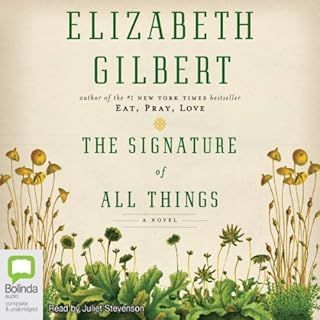
-
The Signature of All Things
- By: Elizabeth Gilbert
- Narrated by: Juliet Stevenson
- Length: 21 hrs and 43 mins
- Unabridged
-
Overall4.5 out of 5 stars 425
-
Performance5 out of 5 stars 393
-
Story4.5 out of 5 stars 392
Elizabeth Gilbert’s first novel in twelve years is an extraordinary story of botany, exploration and desire, spanning across much of the 19th century. This audiobook follows the fortunes of the brilliant Alma Whittaker (daughter of a bold and charismatic botanical explorer) as she comes into her own within the world of plants and science. As Alma’s careful studies of moss take her deeper into the mysteries of evolution, the man she loves draws her in the opposite direction into the realm of the spiritual, the divine and the magical.
-
2 out of 5 stars
-
Sensitively written but ultimately dull
- By hfffoman on 24-04-15
- The Signature of All Things
- By: Elizabeth Gilbert
- Narrated by: Juliet Stevenson
Engaging Ideas and Story
Reviewed: 07-03-24
This is an enjoyable experience, well read by Juliet Stevenson. From different character angles, the book explores an interface between science and spirituality. The characters are engaging and sometimes eccentric. Well researched.
Something went wrong. Please try again in a few minutes.
You voted on this review!
You reported this review!
-
Kala
- By: Colin Walsh
- Narrated by: Frank Blake, Moe Dunford, Seána Kerslake
- Length: 12 hrs and 25 mins
- Unabridged
-
Overall4.5 out of 5 stars 420
-
Performance4.5 out of 5 stars 393
-
Story4.5 out of 5 stars 393
In the seaside town of Kinlough, on Ireland's west coast, three old friends are thrown together for the first time in years. They—Helen, Joe and Mush—were part of an original group of six inseparable teenagers in the summer of 2003, with motherless, reckless Kala Lanann as their group's white-hot center. Soon after that summer's peak, Kala disappeared without a trace.
-
3 out of 5 stars
-
most unappealing
- By Karen on 25-07-23
- Kala
- By: Colin Walsh
- Narrated by: Frank Blake, Moe Dunford, Seána Kerslake
Disappointing
Reviewed: 28-12-23
The performers did their best with an unsatisfactory narrative and a set of characters which were difficult to know and to be interested in.
Something went wrong. Please try again in a few minutes.
You voted on this review!
You reported this review!
5 people found this helpful
-
A Day in the Life of Abed Salama
- A Palestine Story
- By: Nathan Thrall
- Narrated by: Peter Ganim
- Length: 6 hrs and 44 mins
- Unabridged
-
Overall4.5 out of 5 stars 28
-
Performance4.5 out of 5 stars 24
-
Story5 out of 5 stars 24
Milad is five years old and excited for his school trip to a theme park on the outskirts of Jerusalem, but tragedy awaits: his bus is involved in a horrific accident. His father, Abed, rushes to the chaotic site, only to find Milad has already been taken away. Abed sets off on a journey to learn Milad's fate, navigating a maze of physical, emotional, and bureaucratic obstacles he must face as a Palestinian. Interwoven with Abed's odyssey are the stories of Jewish and Palestinian characters whose lives and pasts unexpectedly converge.
-
5 out of 5 stars
-
heart wrenching
- By Giorgio on 02-06-24
- A Day in the Life of Abed Salama
- A Palestine Story
- By: Nathan Thrall
- Narrated by: Peter Ganim
Eye Opening
Reviewed: 06-12-23
The small and significant details of Israel’s oppression of Palestinians are generally not spoken about. This book is refreshing in that it reveals these State behaviours and their impact on the lives of Palestinians.
Something went wrong. Please try again in a few minutes.
You voted on this review!
You reported this review!
2 people found this helpful
-
Blonde Roots
- By: Bernardine Evaristo
- Narrated by: Charlotte Beaumont, Ben Arogundade
- Length: 7 hrs and 15 mins
- Unabridged
-
Overall4 out of 5 stars 172
-
Performance4.5 out of 5 stars 150
-
Story4 out of 5 stars 149
Imagine if the transatlantic slave trade was reversed. Imagine Africans the masters and Europeans their slaves.... Now meet young Doris, living in a sleepy English cottage. One day she is kidnapped and put aboard a slave ship bound for the New World. On a strange tropical island, Doris is told she is an ugly, stupid savage. Her only purpose in life is to please her mistress. Then, as personal assistant to Bwana, Chief Kaga Konata Katamba I, she sees the horrors of the sugarcane fields. Slaves are worked to death under the blazing sun.
-
5 out of 5 stars
-
Brilliant reversal of historical events
- By Taralouise on 30-03-21
- Blonde Roots
- By: Bernardine Evaristo
- Narrated by: Charlotte Beaumont, Ben Arogundade
Disappointing
Reviewed: 21-08-23
For a writer I normally enjoy, this book was disappointing. She did not make good use of an original idea, i.e. reversal of the black and white roles in slavery. I don’t think anything new was said about slavery, which any decent person knows is and was wrong, regardless of the perpetrators. Ben Arogundade reads well and with a dignified tone. Charlotte Beaumont’s reading is too flat.
Something went wrong. Please try again in a few minutes.
You voted on this review!
You reported this review!
-
Other Names for Love
- By: Taymour Soomro
- Narrated by: Homer Todiwala
- Length: 6 hrs and 54 mins
- Unabridged
-
Overall3 out of 5 stars 6
-
Performance3 out of 5 stars 6
-
Story3 out of 5 stars 6
At age 16, Fahad hopes to spend the summer with his mother in London. His father, Rafik, has other plans: hauling his son to Abad, the family's feudal estate. Rafik wants to toughen up his sensitive boy, to teach him about power, duty, family—to make him a man. He enlists Ali, a local teenager, in this project, hoping his presence will prove instructive. Instead, over the course of one hot indolent season, attraction blooms between the two boys, and Fahad finds himself seduced by the wildness of the land and its inhabitants.
-
1 out of 5 stars
-
Disappointing
- By Hugh M. Clarke on 07-07-23
- Other Names for Love
- By: Taymour Soomro
- Narrated by: Homer Todiwala
Disappointing
Reviewed: 07-07-23
Having read some reviews, I was looking forward to this book. However it has proved to be very disappointing. I had problems following the story and it seemed very confused. It was difficult to empathise with any of the characters. I think the reader did his best, but the material is hard to work with.
Something went wrong. Please try again in a few minutes.
You voted on this review!
You reported this review!
-
The Sun Also Rises
- By: Ernest Hemingway
- Narrated by: Nathan Osgood
- Length: 7 hrs and 21 mins
- Unabridged
-
Overall4 out of 5 stars 50
-
Performance4.5 out of 5 stars 43
-
Story3.5 out of 5 stars 43
A poignant look at the disillusionment and angst of the post-World War I generation, the novel introduces two of Hemingway's most unforgettable characters: Jake Barnes and Lady Brett Ashley. The story follows the flamboyant Brett and the hapless Jake as they journey from the wild nightlife of 1920s Paris to the brutal bullfighting rings of Spain with a motley group of expatriates. It is an age of moral bankruptcy, spiritual dissolution, unrealized love and vanishing illusions.
-
5 out of 5 stars
-
Quality writing
- By cliffaw on 05-03-23
- The Sun Also Rises
- By: Ernest Hemingway
- Narrated by: Nathan Osgood
The Sun Never Rises
Reviewed: 12-03-23
Several dull American men go travelling in Paris and fishing in Spain. They spend lots of time “having another drink” but rarely say or do anything of import or interest, beyond trivial talk about people they know, including their equally dull English friend and travelling companion, Brett (female) who also features in the novel and frequently enjoys “another drink”. They attend a bullfight and Brett falls in love (at first sight) with the young and handsome bullfighter, with whom she temporarily elopes. The relationship lasts several days and she decides to return to the lacklustre man she started with.
Having endured this book, I cannot understand how Hemingway achieved the reputation for good writing. “The Sun Also Rises” is prosaic and lacks insight and poetry. It is tiresome, misogynistic, boorish, racist, anti-Semitic and homophobic. Even the Spanish fiesta fails to come alive. Rather than being a “sunrise”, this novel is for me, grey and overcast.
Something went wrong. Please try again in a few minutes.
You voted on this review!
You reported this review!
2 people found this helpful
-
Billy No-Mates
- How I Realised Men Have a Friendship Problem
- By: Max Dickins
- Narrated by: Max Dickins
- Length: 8 hrs and 27 mins
- Unabridged
-
Overall4.5 out of 5 stars 151
-
Performance5 out of 5 stars 129
-
Story4.5 out of 5 stars 130
When Max Dickins decided to propose to his girlfriend, he realised there was no one he could call on to be his best man. He quickly learned that that he wasn’t the only man struggling with friendships. For decades, countless studies from across the world have confirmed that men have fewer close friends than women–and the problem gets worse the older men get. But what goes wrong? And what can men do about it? Dickins is going to find out. His funny and charmingly candid search takes him to the doors of world-leading experts.
-
5 out of 5 stars
-
So funny, so insightful
- By Joe W on 26-10-22
- Billy No-Mates
- How I Realised Men Have a Friendship Problem
- By: Max Dickins
- Narrated by: Max Dickins
Strikes The Right Balance
Reviewed: 26-02-23
This is a very enlightening book, written with a lot of humour and, at the same time, making some very serious points about men and our friendships. It is well researched but does not come across as a heavy text book. The author is very honest and open about his own friendship struggles and he has spoken with others who have investigated the issue academically. Authors rarely read their own work well, but Max Dickins is an exception (final pages of ‘messing about’ excepted). His is an expressive voice and one that lends itself to the confessional nature of the book.
Something went wrong. Please try again in a few minutes.
You voted on this review!
You reported this review!






